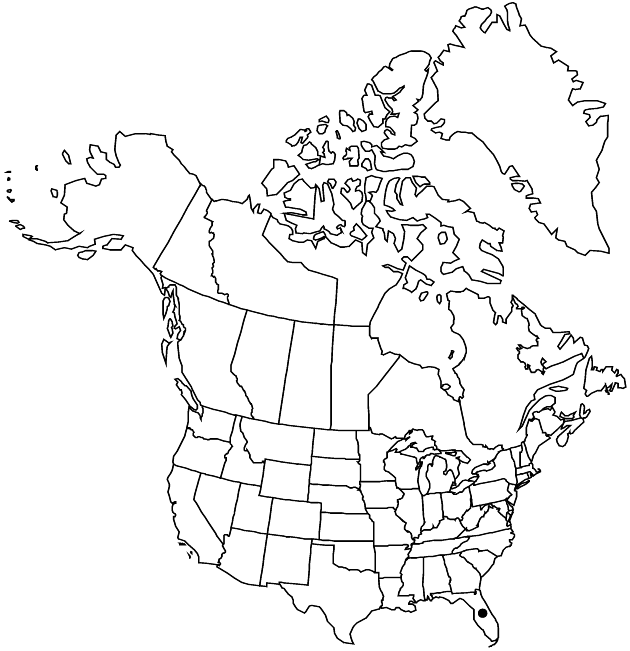Difference between revisions of "Melampodium divaricatum"
in A. P. de Candolle and A. L. P. P. de Candolle, Prodr. 5: 520. 1836.
Basionym: Dysodium divaricatum Richard in C. H. Persoon, Syn. Pl. 2: 489. 1807
FNA>Volume Importer |
FNA>Volume Importer |
(No difference)
| |
Revision as of 18:49, 24 September 2019
Annuals, 15–100+ cm. Leaf blades ± rhombic to lanceolate, 40–150+ × 25–95+ mm, lengths 1–2(–3+) times widths, margins coarsely toothed or entire. Peduncles 1–12+ cm. Outer phyllaries 5, connate 1/4–1/3 their lengths, ovate to orbiculate, 3.5–6 mm. Ray florets 8–13; corollas yellow-orange, laminae oblong-elliptic, 3.5–7+ × 1.6–3+ mm. Disc florets 40–70+. Fruits 2.8–4+ mm. 2n = 24.
Phenology: Flowering year round.
Habitat: Disturbed sites
Elevation: 0–10+ m
Distribution

Fla., Mexico, West Indies (Antilles), Central America, South America, introduced in Old World.
Discussion
Selected References
None.
Lower Taxa
None.